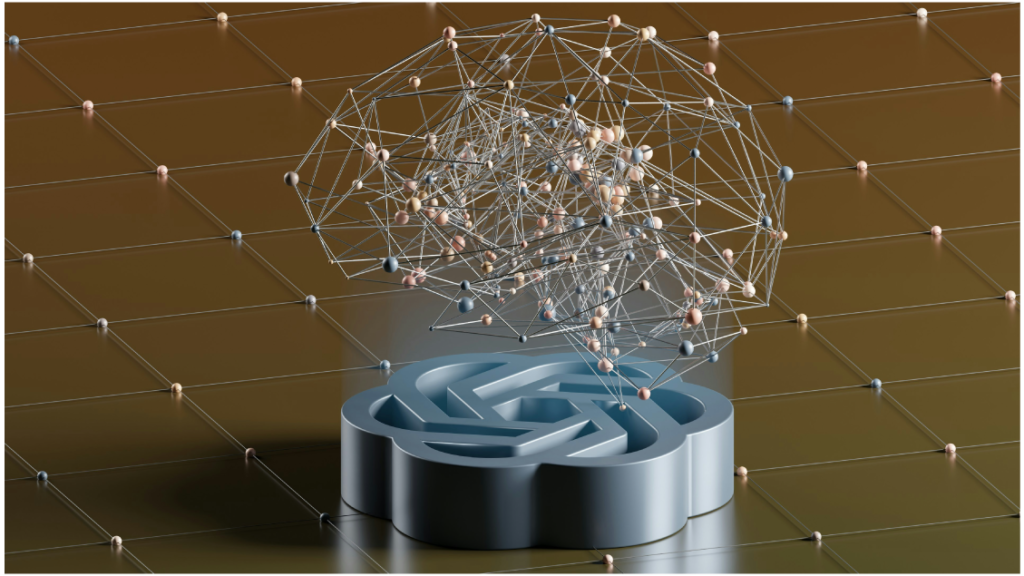Introduction
In recent years, the field of artificial intelligence (AI) has witnessed remarkable advancements, particularly in the domain of natural language processing (NLP). One prominent example of intelligent AI technology is ChatGPT, a language model developed by OpenAI. This essay delves into the concept of intelligent artificial agents, focusing on ChatGPT as a case study to understand its underlying mechanisms, applications, and implications.
Understanding ChatGPT
ChatGPT is a state-of-the-art language generation model based on the Transformer architecture, specifically designed to understand and generate human-like text. Its core capability lies in processing and generating natural language responses, enabling it to engage in text-based conversations with users. ChatGPT is trained on vast amounts of text data sourced from the internet, which allows it to exhibit a wide-ranging knowledge base and conversational skills. The model employs techniques such as attention mechanisms and deep neural networks to achieve its remarkable language understanding and generation capabilities.
Applications of ChatGPT
The versatility of ChatGPT lends itself to numerous practical applications across various industries. One significant application is in customer service and support, where ChatGPT-powered chatbots can interact with customers in real-time, addressing inquiries and resolving issues efficiently. Another area of application is content generation, where ChatGPT can assist writers and content creators by generating drafts, ideas, or completing sentences based on prompts. Additionally, ChatGPT has been integrated into educational tools, virtual assistants, and even creative projects like generating poetry or stories.
Challenges and Ethical Considerations
While the capabilities of intelligent artificial agents like ChatGPT are impressive, they also raise important challenges and ethical considerations. One critical concern is the potential for biases in language and decision-making, as AI models like ChatGPT learn from vast datasets that may contain inherent biases. Ensuring fairness and transparency in AI systems remains an ongoing area of research and development. Moreover, there are ethical dilemmas surrounding the use of AI for tasks that traditionally require human judgment, such as medical diagnosis or legal advice.
The Future of Intelligent Artificial Agents
Looking ahead, the evolution of intelligent artificial agents promises even more sophisticated and nuanced interactions between humans and machines. Future developments may focus on enhancing the empathy and emotional intelligence of AI systems, enabling them to understand and respond to human emotions more effectively. Research efforts will also continue to address the challenges of explainability, accountability, and privacy in AI technologies.
In the quest for advancing intelligent artificial agents like ChatGPT, researchers are exploring novel techniques to push the boundaries of AI capabilities. One area of active research is the development of more efficient and scalable models that can handle increasingly complex tasks while remaining computationally feasible. This involves innovations in model architectures, training methodologies, and hardware acceleration.
Furthermore, the integration of multimodal capabilities into intelligent agents is gaining traction. Multimodal AI systems can process and generate information from multiple modalities such as text, images, and audio, enabling richer and more interactive user experiences. For instance, a future iteration of ChatGPT might not only generate text-based responses but also incorporate visual or auditory elements into its interactions.
On the ethical front, efforts are underway to promote responsible AI development and deployment. Initiatives focus on addressing biases in training data, ensuring algorithmic transparency, and establishing frameworks for AI governance and accountability. Collaborative initiatives involving governments, industry leaders, and academia are essential to establish guidelines and regulations that foster the responsible use of intelligent AI technologies.
The societal impact of intelligent artificial agents is profound and multifaceted. These agents have the potential to democratize access to information, facilitate personalized experiences, and revolutionize industries such as healthcare, education, and entertainment. However, they also raise concerns about job displacement, privacy infringements, and the erosion of human-to-human interaction.
Looking ahead, the future trajectory of intelligent artificial agents like ChatGPT is likely to be influenced by several key trends and areas of exploration. One prominent direction is the pursuit of more robust and adaptable AI systems that can generalize well across different domains and scenarios. Current models like ChatGPT excel in specific tasks but may struggle with nuanced contexts or rare scenarios. Future research will aim to enhance the generalization capabilities of AI agents, making them more versatile and reliable in real-world applications.
Another crucial avenue of advancement is the development of AI systems capable of meaningful and contextually aware interactions. As AI technologies become more integrated into daily life, there is a growing demand for agents that can understand and respond to human emotions, intentions, and social cues. This involves not only improving the linguistic capabilities of AI but also incorporating elements of empathy and social intelligence into their design.
Furthermore, the democratization of AI through open-source initiatives and community-driven development is likely to accelerate innovation in this space. Platforms that allow researchers, developers, and enthusiasts to collaborate, share models, and build upon existing work will contribute to a more inclusive and diverse ecosystem of intelligent AI agents.
Ethical considerations will remain at the forefront of AI development. Addressing issues such as bias, fairness, privacy, and accountability will require ongoing diligence and proactive measures from researchers, policymakers, and industry stakeholders. Ensuring that AI technologies are deployed responsibly and ethically is essential for building trust and acceptance among users and society at large.
In summary, the evolution of intelligent artificial agents like ChatGPT represents a pivotal moment in the advancement of AI technology. These agents have the potential to revolutionize various aspects of human interaction, communication, and problem-solving. However, realizing this potential requires a holistic approach that encompasses technical innovation, ethical stewardship, and societal engagement. By fostering a collaborative and responsible approach to AI development, we can navigate the complexities of deploying intelligent AI agents in a manner that benefits individuals, communities, and the broader global society.


